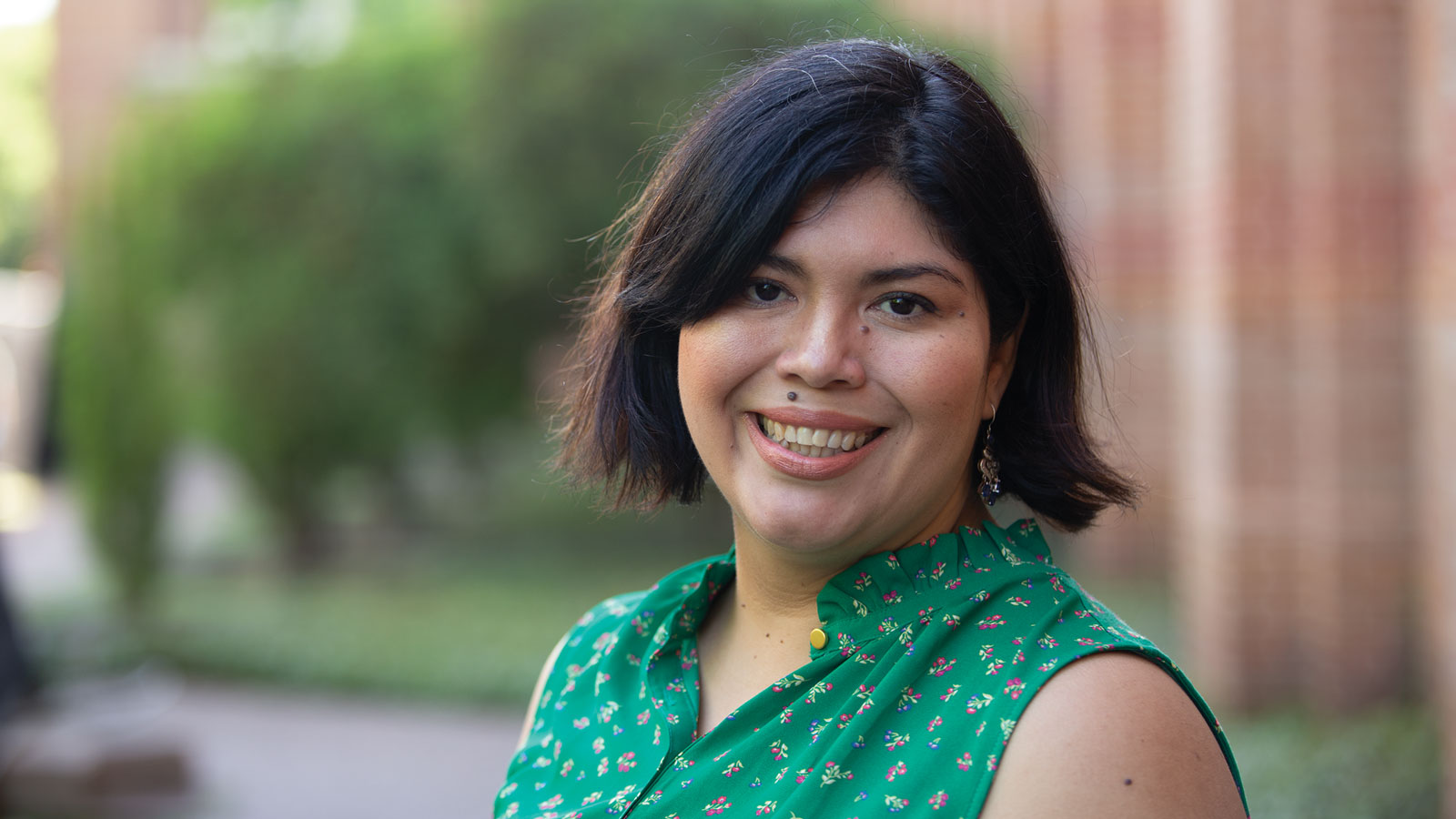This article originally appeared in the 2022 issue of Rice Engineering Magazine.
Cecilia Fernandez is the assistant director of diversity, equity, inclusion (DEI) and outreach for the School of Engineering. Fernandez is the oldest of seven children, and her parents were undocumented immigrants from Mexico. She earned her B.S. from MIT and Ph.D. from UCLA. Fernandez joins the school after serving as assistant director of outreach and research for the R-STEM Engagement Office.
How did your unique background prepare you for this role?
My background allows me to engage in DEI work through a grounding in personal experience while simultaneously drawing from a researcher’s perspective. As an undergraduate at MIT, engineering culture sometimes led to tensions with my identity as a first-generation Latinx cisgender woman. My Ph.D. training allows me to understand how to investigate these tensions and develop new perspectives on approaching complex social problems.
What do you think diversity, equity and inclusion should look like at Rice Engineering?
I think DEI at Rice Engineering should provide equitable access and resources to students and the community. We should recruit our students, staff and faculty from a wide range of backgrounds and facilitate community development where people can flourish as innovative problem solvers who consider various dimensions. Finally, the school culture should be inclusive to everyone in the community and be intentionally designed to make sure community members whose social and cultural knowledge and experiences have been previously excluded are now included.
What are your primary goals in your first few years?
Assessment, accountability and community-building. Before any work can be done, it is important to understand the lay of the land. As a researcher, I want to understand what kinds of needs and experiences different stakeholders in the School of Engineering have, in addition to a comprehensive understanding of how all the different institutional components work together. Then we can develop initiatives with measurable goals that will help keep us accountable to the Rice Engineering community. This is not a change that one office can achieve alone. We will collaborate with various entities to work on DEI issues that have an impact on engineering to build community.
What are the biggest challenges in attracting and retaining underrepresented students in STEM fields?
One challenge is understanding that students from historically excluded communities have different experiences, goals and needs. We want to make sure we communicate that we value them, including taking responsibility and ownership of social factors that might have deterred students from STEM fields in the past. We need to determine how we as an engineering community can make sure to provide students with agency in their engineering careers. How can we as a community create a space where we value the perspectives and knowledge of historically excluded communities?
What can our Rice Engineering community do to support DEI in engineering?
We are open to all kinds of collaborations. It can be as simple as sharing your positive experiences at Rice with high school and middle school students or partnering with our student clubs to support them in the outreach they do. For example, Rice SHPE (the Society of Professional Hispanic Engineers) does a Noche de Ciencias (Night of Science) at local Houston public schools. Please reach out and we would love to work with you.

